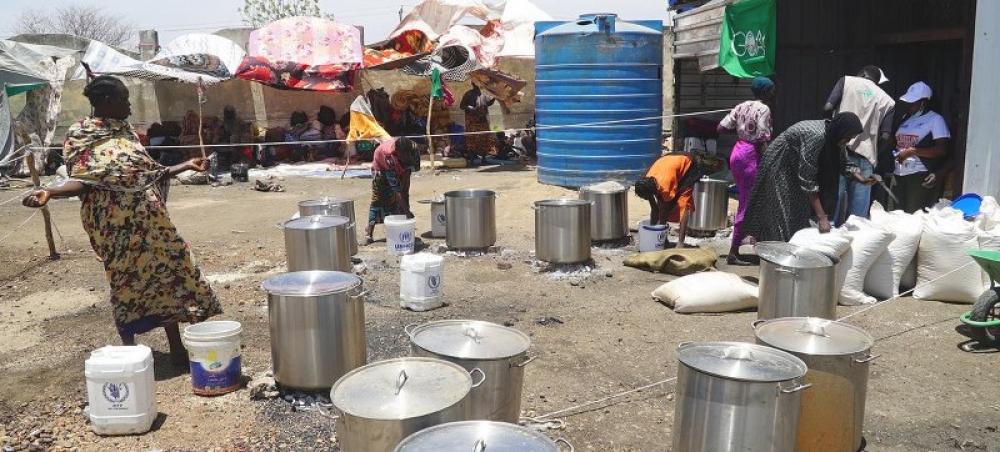Just Earth News | @justearthnews | 11 May 2023

Image: © WFP/Peter Louis
New York: The grim prospect of record hunger levels in Sudan is becoming more likely by the day, as heavy fighting continues, UN humanitarians warned on Wednesday.
In an alert on the situation, the World Food Programme (WFP) said that it expected between two and 2.5 million more people to face acute hunger in the coming months, because of conflict that erupted on 15 April between forces loyal to rival Generals Abdel Fattah Al Burhan and Mohamed Hamdan Dagalo.
This development would take the already dire food insecurity in Sudan to a “record high”, WFP said, with two-fifths of the country’s population affected.
According to the UN agency, the biggest spikes in food insecurity could occur in West Darfur, West Kordofan, Blue Nile, Red Sea and North Darfur states.
‘Huge’ needs, scarce resources
Meanwhile, the UH High Commissioner for Refugees Filippo Grandi shared on Twitter that more than 150,000 people have now fled Sudan – both Sudanese citizens and refugees hosted in the country.
“Needs are huge. Resources are scarce. Aid is required, urgently!” Mr. Grandi wrote.
Soaring food prices
UN humanitarians expect the price of basic food items to increase by 25 per cent in the next three to six months.
If the situation in the country bars farmers from accessing their fields and planting key staples between May and July, food prices could rise even more, WFP said.
Lifesaving aid
The UN agency has resumed its operations in Sudan, after a temporary pause following the killing of three of its aid workers at the start of the conflict. Since last week, and despite a dire security situation, WFP has reached over 35,000 people with food assistance.
The aid is a lifeline for the most vulnerable, including families who have recently fled the conflict, refugees living in Sudan and internally displaced people and their host communities.
Overall, the agency aims to support 4.9 million vulnerable people in areas where the security situation allows, in addition to “preventing and treating moderate acute malnutrition” for 600,000 children under five and pregnant and breastfeeding women.
WFP also said that the UN Humanitarian Air Services (UNHAS), which it manages, is starting “regular” air connections between Port Sudan and Addis Ababa, Ethiopia, to enable the “safe transportation of frontline humanitarians and critical aid”.
Support for neighbouring countries
The UN agency is also providing emergency food assistance to thousands who have fled Sudan to neighbouring Chad, South Sudan, Egypt and the Central African Republic, amid dire funding shortages.
In South Sudan for instance, where more than 40,000 returnees have fled across the border, WFP says that it is “cash-strapped” and that any extra pressure on resources could force it to take food and funding from others to support new arrivals.
According to figures from the UN Refugee Agency, UNHCR’s data portal, the largest outflows from Sudan have been to Egypt, which has seen the arrival of over 68,000 Sudanese refugees and close to 5,000 refugees of other nationalities fleeing the fighting.
Last week, the agency appealed for $445 million to support the displaced until October.
Relief chief hears from frontline responders
Under-Secretary-General for Humanitarian Affairs, Martin Griffiths, spoke by telephone with frontline responders on Wednesday in the capital, Khartoum, including doctors and engineers.
Briefing correspondents at the regular briefing in New York, Deputy Spokesperson Farhan Haq, said that in the call, "Mr. Griffiths heard firsthand about this community-led humanitarian aid response and their courageous efforts to provide food, shelter and emergency health support amid the ongoing threat of violence and looting."
He commended once again the resilience and creativity of the Sudanese people, stressing that the UN and partners needed to continue supporting them.